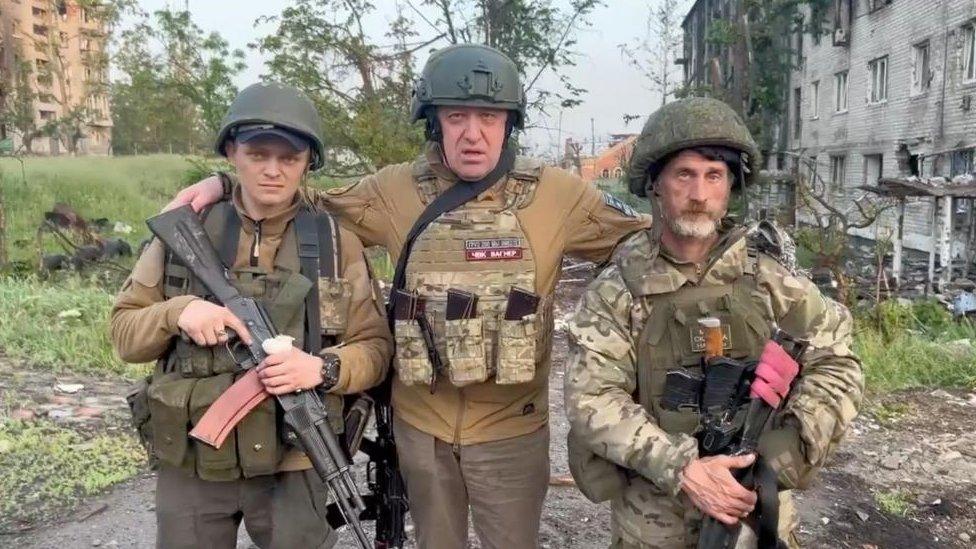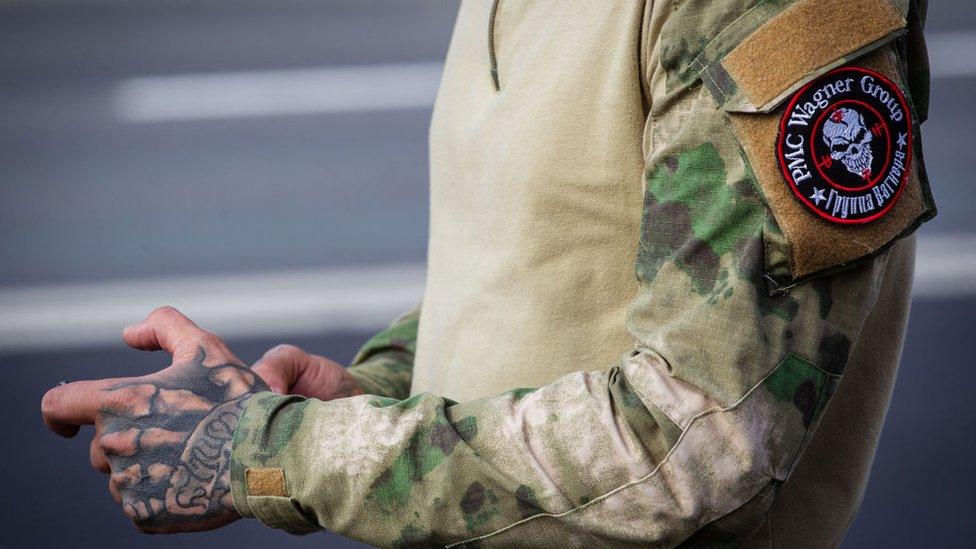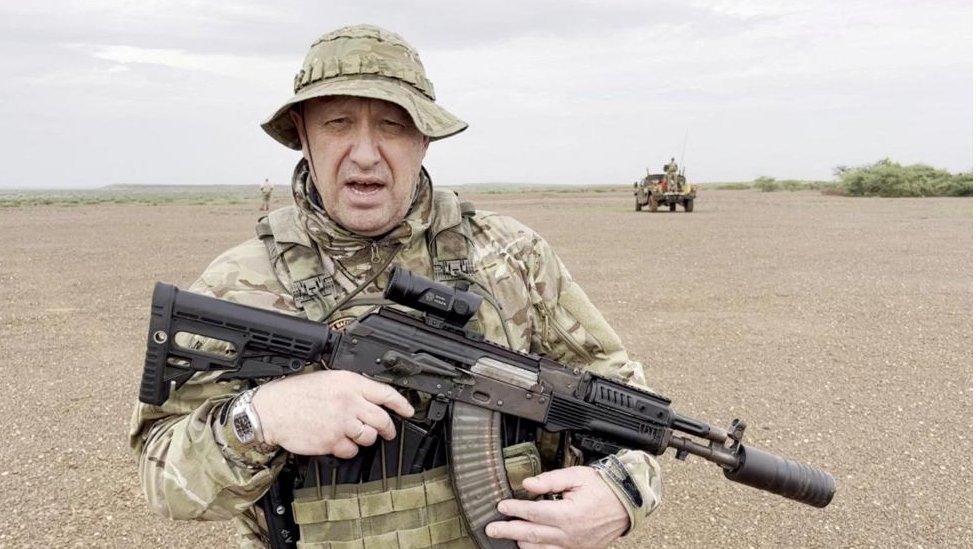Is Wagner still a threat to global security?
- Published

Yevgeny Prigozhin with mercenaries in Ukraine
Russia's Wagner mercenary group is set to be proscribed by the UK Government as a terrorist organisation under the Terrorism Act 2000.
The move is significant but considered by some to be long overdue.
It follows criticism by Parliament's Foreign Affairs Committee that the Government had not done enough to confront the activities of Wagner.
What is Wagner?
The Wagner group is a private military group, financed by the Kremlin and active in promoting Russia's interests around the globe.
Formed in 2014 with help from Russia's GRU military intelligence, its core members were former Russian Spetsnaz (Special Forces) operatives and career soldiers with a reputation for both toughness and brutality.
They have been fighting on Russia's behalf in Ukraine, notably in the Donbas, Syria and several countries in Africa.
Headed by the late Russian billionaire Yevgeny Prigozhin, they have proved to be Russia's most effective fighting force in the Ukraine war, largely because they have been able to operate independently from Russia's inefficient and often incompetent Defence Ministry.
President Vladimir Putin recently admitted that the Kremlin has been funding Wagner to the tune of a billion US dollars. But the money flows both ways.
Wagner has won lucrative contracts in countries like Mali, Central African Republic and Sudan, providing autocratic rulers with security and protection services in exchange for gold, diamonds and mineral concessions. Much of the proceeds have made their way back to Moscow and funded the Russian war effort.
Human rights groups have accused Wagner of committing widespread torture and carrying out atrocities in a number of countries.
The home secretary stated: "Wagner has been involved in looting, torture and barbarous murders. Its operations in Ukraine, the Middle East and Africa are a threat to global security." The Government says it poses a threat to British nationals abroad.
What difference will this ban make?
The proscription of Wagner, once it becomes law, will make it a criminal offence to be a member of the group or to assist its activities, including the transfer of money flows. Some offences carry a jail sentence of up to 14 years.
This law will mean that Wagner's assets can be classed as 'terrorist property' and seized. This has huge legal implications for the thousands of Ukrainians seeking compensation, meaning that in theory they can now pursue these through the UK courts.
Dr Jason McCue, senior partner at the law firm McCue Jury & Partners, applauded the UK's move. He said it "would make it almost impossible for the operations, finances and logistics of the post-modern terror organisation's business to continue".
He described the Wagner group as "one of the most vicious, sadistic bunch of mercenaries that have equalled the depravities of the worst elements of (Nazi Germany's) Waffen SS".
Is Wagner still a threat to global security?
Yes, according to the UK government, which is why they are proscribing it.
Some might say that this measure comes so late - more than a year after many called for Wagner to be proscribed - that it is almost a case of shutting the barn door after the horse has bolted, that the Government should have acted sooner to curtail its activities when Wagner was at the height of its power.
Wagner today is already a weaker organisation than it was three months ago before it carried out a mutinous and aborted march on Moscow.
Since then, it has effectively been hobbled by the Kremlin, forced to hand over its heavy weapons and sign new contracts with Russia's Defence Ministry.
Its forces are no longer fighting in Ukraine. Instead they are scattered between Belarus and Africa while others have joined the Russian Army or simply gone home.
Its leadership is decapitated after a mysterious plane crash in August that killed Wagner's leader, deputy leader and finance director. Western officials said this was President Putin's revenge for the mutiny. The Kremlin has denied involvement.
But Wagner remains an extensive and potentially disruptive force across several countries where it operates. Poland and the Baltic states are concerned that it may try to foment trouble on the border with Belarus.
In West Africa its forces have replaced the French in a number of countries.
Analysts and Kremlin-watchers now expect Russia's military intelligence arm, the GRU, to take over much of the direction of Wagner, moving away from direct combat and more into cyber warfare and deniable, 'grey zone' operations.
Related topics
- Published6 September 2023

- Published6 September 2023

- Published26 August 2023
